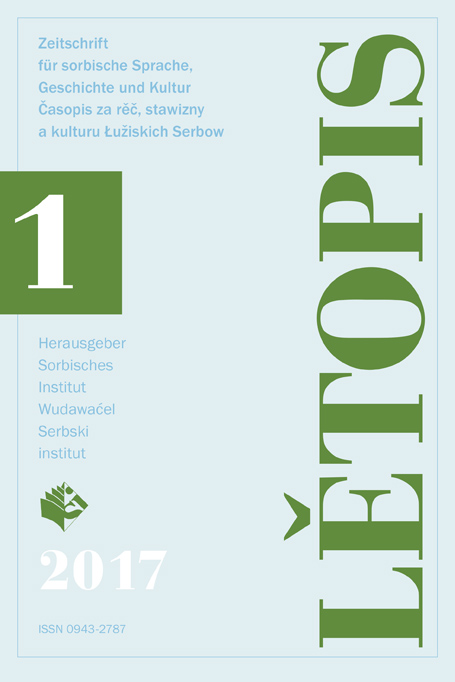Zum Einfluss des Nationalsozialismus auf das kirchliche Leben der evangelischen Sorben in der niederschlesischen Oberlausitz
The Influence of National Socialism on the Religious Life of the Lutheran Sorbs in the Lower Silesian part of Upper Lusatia.
From Reports on the Parishes of Hoyerswerda, Lohsa and Schleife
Author(s): Edmund PechSubject(s): History, Recent History (1900 till today), Fascism, Nazism and WW II
Published by: Domowina-Verlag GmbH / Ludowe nakładnistwo Domowina
Keywords: nationalsozialismus; oberlausitz; kirche; bericht; pfarrer; versetzung; kirchgemeinde; nazism; church; sorbian upper lusatia; report; parish; hoyerswerda; lohsa; schleife; pastor; remove
Summary/Abstract: At the beginning of the 1920s there were 17 parishes in the Lutheran Consistory of Silesia, in which Sorbian was used in services. The growing lack of Sorbian probationary candidates for the clergy became a great problem from the middle of the 1920s. As a result, the Lutheran Consistory in Breslau provided financial subsidies for Sorbian language courses and grants to students of theology. This continuing financial support for the future generation of Sorbian clergy and for Sorbian parishes was initially maintained, even after 1933. The language policy of the Church authorities changed in 1938, when Sorbian candidates for the ministry were no longer appointed to posts in bilingual parishes. The Sorbian graduates, of whom there were only a few, were placed in other areas of the Church Province of Silesia. In addition, there was conflict with supporters of the Confessional Church. This ultimately led to the transfer of two Sorbian pastors. Pastors Jurij Malink (Ger. Georg Mahling) in Lohsa and Gottfried Rejsler (Gottfried Rösler) in Schleife were removed from their Sorbian parishes in 1938.
- Issue Year: 2017
- Issue No: 1
- Page Range: 113-133
- Page Count: 21
- Language: German
- Content File-PDF

